- Home
- Packaging Products
- Folding Bag Machine Market Size, Future Growth and Forecast 2033
Folding Bag Machine Market Size, Future Growth and Forecast 2033
Folding Bag Machine Market Segments - by Type (Automatic, Semi-Automatic), Application (Food Packaging, Retail, Industrial, Others), Material (Plastic, Paper, Others), End-User (Manufacturers, Retailers, Others) - Market Dynamics, Growth Opportunities, Strategic Drivers, and PESTLE Outlook (2025–2033)
Folding Bag Machine Market Outlook
The Folding Bag Machine market was valued at $1.2 billion in 2024 and is projected to reach $2.5 billion by 2033, growing at a CAGR of 8.5% during the forecast period 2025-2033. This market is experiencing significant growth due to the increasing demand for efficient and automated packaging solutions across various industries. The rise in e-commerce and retail sectors has further fueled the need for Advanced Packaging machinery, including folding bag machines, to enhance productivity and reduce operational costs. Additionally, the growing emphasis on sustainable packaging solutions is driving innovation in this market, as manufacturers seek to develop machines that can handle eco-friendly materials such as biodegradable plastics and recycled paper.
However, the market faces challenges such as high initial investment costs and the need for skilled operators to manage these sophisticated machines. Regulatory constraints related to packaging waste and environmental impact also pose hurdles for market growth. Despite these challenges, the folding bag machine market holds substantial growth potential, driven by technological advancements and the increasing adoption of automation in packaging processes. Companies are focusing on developing machines with enhanced features such as higher speed, precision, and versatility to cater to the diverse needs of end-users.
Report Scope
| Attributes | Details |
| Report Title | Folding Bag Machine Market Size, Future Growth and Forecast 2033 |
| Base Year | 2024 |
| Historic Data | 2017-2023 |
| Forecast Period | 2025-2033 |
| Number of Pages | 225 |
| Type | Automatic, Semi-Automatic |
| Application | Food Packaging, Retail, Industrial, Others |
| Material | Plastic, Paper, Others |
| End-User | Manufacturers, Retailers, Others |
| Customization Available | Yes* |
Key Highlights Folding Bag Machine Market

- Increasing demand for automated packaging solutions in the e-commerce and retail sectors.
- Growing emphasis on sustainable and eco-friendly packaging materials.
- Technological advancements leading to more efficient and versatile machines.
- High initial investment costs and need for skilled operators as key challenges.
- Regulatory constraints related to packaging waste and environmental impact.
- Rising adoption of folding bag machines in emerging markets.
- Focus on developing machines with enhanced speed, precision, and versatility.
- Expansion of product portfolios by key market players to cater to diverse end-user needs.
- Strategic partnerships and collaborations to enhance market presence.
- Increasing investments in R&D to drive innovation in machine design and functionality.
Competitive Intelligence
The Folding Bag Machine market is highly competitive, with several key players striving to gain a significant share. Leading companies such as Windmoeller & Hoelscher, Hudson-Sharp Machine Company, and CMD Corporation are at the forefront, leveraging their extensive experience and technological expertise to maintain a competitive edge. Windmoeller & Hoelscher, for instance, is known for its innovative solutions and strong focus on R&D, which has helped it capture a substantial market share. Hudson-Sharp Machine Company, on the other hand, emphasizes customer-centric solutions and has a robust global distribution network, enhancing its market reach.
CMD Corporation is recognized for its advanced machine designs and commitment to sustainability, which aligns with the growing demand for eco-friendly packaging solutions. Other notable players include Totani Corporation, HolwegWeber, and Newlong Machine Works, each with unique strengths and strategic approaches. Totani Corporation is gaining ground with its high-speed machines and focus on precision, while HolwegWeber is known for its versatile product offerings. Newlong Machine Works has a strong presence in the Asian market, benefiting from its extensive manufacturing capabilities and competitive pricing strategies. Overall, the competitive landscape is characterized by continuous innovation, strategic partnerships, and a focus on expanding product portfolios to meet evolving customer demands.
Regional Market Intelligence of Folding Bag Machine
In North America, the Folding Bag Machine market is valued at $300 million and is expected to grow steadily due to the strong presence of key players and the increasing adoption of automated packaging solutions. The region's focus on sustainability and eco-friendly packaging materials is also driving market growth. In Europe, the market is valued at $250 million, with a significant CAGR of 9%, driven by stringent regulations on packaging waste and a strong emphasis on sustainable practices. The Asia-Pacific region, with a market size of $400 million, is experiencing the highest growth rate of 15%, fueled by rapid industrialization, urbanization, and the expansion of the e-commerce sector.
Latin America and the Middle East & Africa are also witnessing growth, albeit at a slower pace. The Latin American market, valued at $150 million, is growing at a CAGR of 7%, driven by the increasing demand for efficient packaging solutions in the food and beverage industry. The Middle East & Africa, with a market size of $100 million, is expected to grow at a CAGR of 5%, supported by the rising adoption of automated Packaging Machinery in the retail and industrial sectors. Overall, regional differences in market performance are influenced by factors such as economic development, regulatory environment, and the level of technological adoption.
Top Countries Insights in Folding Bag Machine
The United States, with a market size of $250 million and a CAGR of 8%, is a leading country in the Folding Bag Machine market, driven by the strong presence of key players and the increasing demand for automated packaging solutions. China, with a market size of $200 million and a CAGR of 12%, is experiencing rapid growth due to the expansion of the e-commerce sector and the increasing focus on Sustainable Packaging. Germany, valued at $150 million with a CAGR of 9%, is a key market in Europe, driven by stringent regulations on packaging waste and a strong emphasis on sustainability.
India, with a market size of $100 million and a CAGR of 15%, is witnessing significant growth due to rapid industrialization and urbanization, along with the expansion of the retail sector. Brazil, valued at $80 million with a CAGR of 7%, is a leading market in Latin America, driven by the increasing demand for efficient packaging solutions in the food and beverage industry. These countries are characterized by unique growth drivers, including regulatory policies, demand shifts, and innovation factors, which influence their market performance.
Folding Bag Machine Market Segments Insights

Type Analysis
The Folding Bag Machine market is segmented by type into automatic and semi-automatic machines. Automatic folding bag machines are gaining traction due to their ability to enhance productivity and reduce labor costs. These machines are equipped with advanced features such as high-speed operation, precision, and versatility, making them ideal for large-scale production environments. The demand for automatic machines is driven by the increasing adoption of automation in packaging processes across various industries, including food, retail, and industrial sectors. On the other hand, semi-automatic machines are preferred by small and medium-sized enterprises due to their cost-effectiveness and ease of operation. These machines offer flexibility and are suitable for businesses with moderate production volumes.
The competition in this segment is intense, with key players focusing on developing machines with enhanced features to cater to diverse customer needs. Companies are investing in R&D to innovate and improve machine design, functionality, and efficiency. The growing emphasis on sustainable packaging solutions is also influencing the development of machines that can handle eco-friendly materials, such as biodegradable plastics and recycled paper. Overall, the type segment is characterized by continuous innovation and a focus on meeting the evolving demands of end-users.
Application Analysis
The application segment of the Folding Bag Machine market includes food packaging, retail, industrial, and others. The food packaging segment is a major contributor to market growth, driven by the increasing demand for packaged food products and the need for efficient packaging solutions to ensure product safety and quality. Folding bag machines are widely used in the food industry to package a variety of products, including snacks, bakery items, and frozen foods. The retail sector is also witnessing significant growth, fueled by the expansion of the e-commerce industry and the increasing demand for convenient and attractive packaging solutions.
In the industrial sector, folding bag machines are used for packaging a wide range of products, including chemicals, fertilizers, and construction materials. The demand for these machines is driven by the need for efficient and reliable packaging solutions to protect products during transportation and storage. The competition in the application segment is intense, with companies focusing on developing machines with enhanced features to cater to the specific needs of different industries. The growing emphasis on sustainability is also influencing the development of machines that can handle eco-friendly materials, such as biodegradable plastics and recycled paper.
Material Analysis
The material segment of the Folding Bag Machine market includes plastic, paper, and others. Plastic is the most widely used material in the packaging industry due to its versatility, durability, and cost-effectiveness. Folding bag machines are designed to handle a variety of plastic materials, including polyethylene, polypropylene, and biodegradable plastics. The demand for Plastic Packaging is driven by the increasing need for lightweight and durable packaging solutions in various industries, including food, retail, and industrial sectors.
Paper is also gaining traction as a sustainable packaging material, driven by the growing emphasis on eco-friendly packaging solutions. Folding bag machines are designed to handle a variety of paper materials, including recycled paper and biodegradable paper. The demand for paper packaging is driven by the increasing focus on sustainability and the need for environmentally friendly packaging solutions. The competition in the material segment is intense, with companies focusing on developing machines that can handle a wide range of materials to cater to diverse customer needs. The growing emphasis on sustainability is also influencing the development of machines that can handle eco-friendly materials, such as biodegradable plastics and recycled paper.
End-User Analysis
The end-user segment of the Folding Bag Machine market includes manufacturers, retailers, and others. Manufacturers are the largest end-users of folding bag machines, driven by the increasing demand for efficient and reliable packaging solutions to enhance productivity and reduce operational costs. Folding bag machines are widely used in various manufacturing industries, including food, retail, and industrial sectors, to package a wide range of products.
Retailers are also significant end-users of folding bag machines, driven by the increasing demand for convenient and attractive packaging solutions to enhance customer experience and brand image. The competition in the end-user segment is intense, with companies focusing on developing machines with enhanced features to cater to the specific needs of different end-users. The growing emphasis on sustainability is also influencing the development of machines that can handle eco-friendly materials, such as biodegradable plastics and recycled paper. Overall, the end-user segment is characterized by continuous innovation and a focus on meeting the evolving demands of end-users.
The Folding Bag Machine market is characterized by a diverse range of players, each vying for a significant share. Windmoeller & Hoelscher leads the market with a substantial share, attributed to its innovative solutions and strong focus on R&D. Hudson-Sharp Machine Company and CMD Corporation follow closely, leveraging their extensive experience and technological expertise to maintain a competitive edge. Totani Corporation and HolwegWeber are also key players, known for their high-speed machines and versatile product offerings. Newlong Machine Works has a strong presence in the Asian market, benefiting from its extensive manufacturing capabilities and competitive pricing strategies.
The market share distribution is influenced by factors such as pricing, innovation, and strategic partnerships. Companies are focusing on expanding their product portfolios and enhancing their market presence through strategic collaborations and partnerships. The growing emphasis on sustainability is also influencing market share distribution, as companies strive to develop machines that can handle eco-friendly materials. Overall, the market share analysis highlights the competitive nature of the Folding Bag Machine market, characterized by continuous innovation and a focus on meeting the evolving demands of end-users.
Folding Bag Machine Market Segments
The Folding Bag Machine market has been segmented on the basis of
Type
- Automatic
- Semi-Automatic
Application
- Food Packaging
- Retail
- Industrial
- Others
Material
- Plastic
- Paper
- Others
End-User
- Manufacturers
- Retailers
- Others
Primary Interview Insights
What are the key drivers for the Folding Bag Machine market?
What challenges does the Folding Bag Machine market face?
How is technology influencing the Folding Bag Machine market?
Which regions are experiencing the highest growth in the Folding Bag Machine market?
What strategies are companies adopting to enhance their market presence?
Latest Reports

The fiber drums market was valued at $1.2 billion in 2024 and is projected to reach $2.1 billion by 2033, growing at a CAGR of 6.5% during the forecast period 2025–2033.

The cosmetics and perfumery glass bottles market was valued at $1.5 billion in 2024 and is projected to reach $2.3 billion by 2033, growing at a CAGR of 4.8% during the forecast period 2025–2033.

The medical devices packaging market was valued at $25 billion in 2024 and is projected to reach $40 billion by 2033, growing at a CAGR of 5.5% during the forecast period 2025–2033.
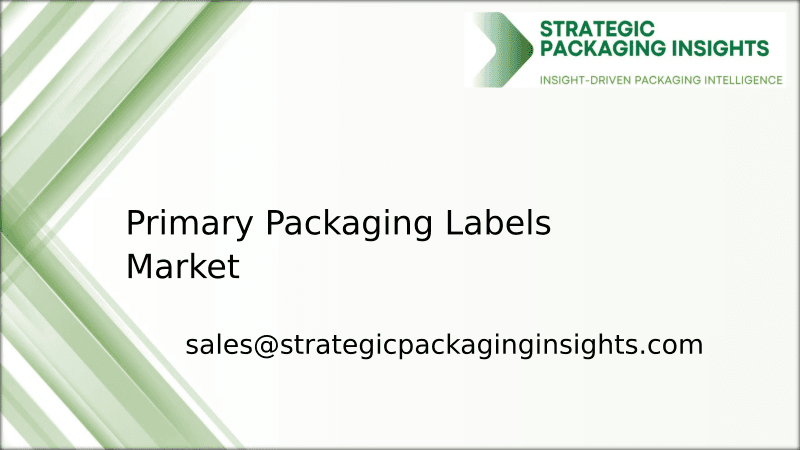
The primary packaging labels market was valued at $35 billion in 2024 and is projected to reach $55 billion by 2033, growing at a CAGR of 5.2% during the forecast period 2025–2033.

The corrugated board packaging market was valued at $250 billion in 2024 and is projected to reach $380 billion by 2033, growing at a CAGR of 4.5% during the forecast period 2025–2033.
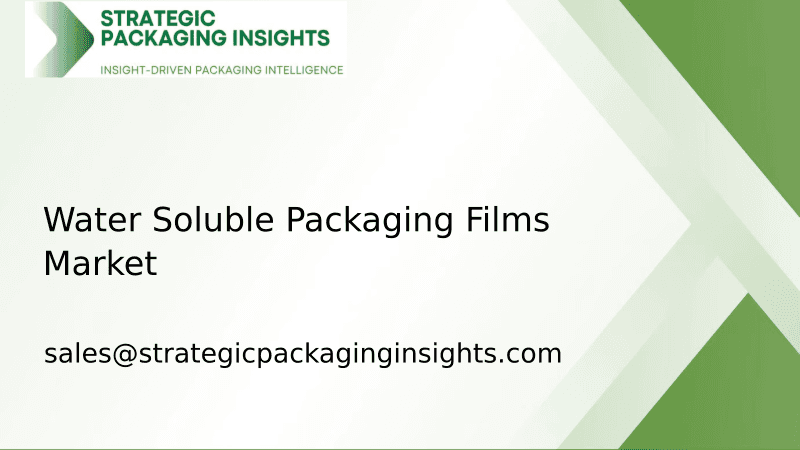
The Water Soluble Packaging Films market was valued at $2.8 billion in 2024 and is projected to reach $5.6 billion by 2033, growing at a CAGR of 8.1% during the forecast period 2025–2033.

The Aluminium Foil Packaging market was valued at $25 billion in 2024 and is projected to reach $40 billion by 2033, growing at a CAGR of 5.5% during the forecast period 2025–2033.

The self-heating food packaging market was valued at $4.5 billion in 2024 and is projected to reach $7.8 billion by 2033, growing at a CAGR of 6.2% during the forecast period 2025–2033.

The Smart Container market was valued at $2.5 billion in 2024 and is projected to reach $8.7 billion by 2033, growing at a CAGR of 14.5% during the forecast period 2025–2033.

The Automatic Labeling Machine market was valued at $2.5 billion in 2024 and is projected to reach $4.8 billion by 2033, growing at a CAGR of 7.2% during the forecast period 2025–2033.

The Hot Melt Glue Labeler market was valued at $1.2 billion in 2024 and is projected to reach $2.3 billion by 2033, growing at a CAGR of 6.5% during the forecast period 2025–2033.

The Ethical Label market was valued at $1.5 billion in 2024 and is projected to reach $3.2 billion by 2033, growing at a CAGR of 8.5% during the forecast period 2025–2033.

The Packaging Tensioner market was valued at $1.2 billion in 2024 and is projected to reach $2.3 billion by 2033, growing at a CAGR of 6.5% during the forecast period 2025–2033.
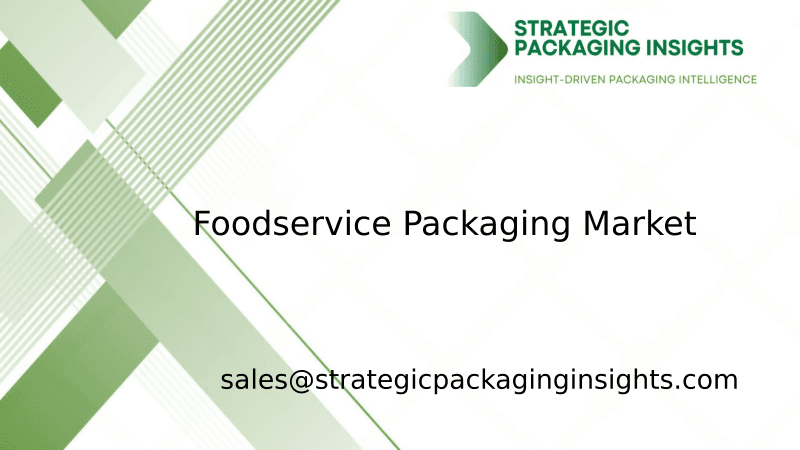
The foodservice packaging market was valued at $120 billion in 2024 and is projected to reach $180 billion by 2033, growing at a CAGR of 4.5% during the forecast period 2025–2033.

The nano-enabled packaging market was valued at $15.2 billion in 2024 and is projected to reach $35.6 billion by 2033, growing at a CAGR of 9.5% during the forecast period 2025–2033.
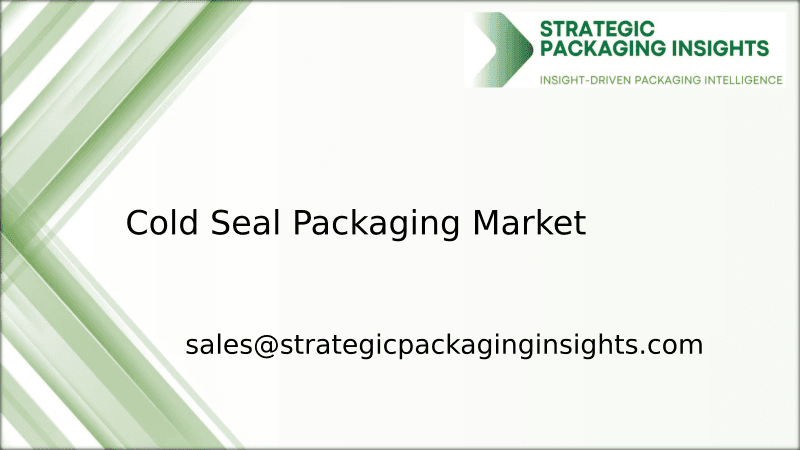
The Cold Seal Packaging market was valued at $1.5 billion in 2024 and is projected to reach $2.3 billion by 2033, growing at a CAGR of 4.8% during the forecast period 2025–2033.

The Transparent Barrier Packaging Films market was valued at $12.5 billion in 2024 and is projected to reach $20.3 billion by 2033, growing at a CAGR of 5.8% during the forecast period 2025–2033.

The Flatback Tape market was valued at $2.5 billion in 2024 and is projected to reach $4.1 billion by 2033, growing at a CAGR of 5.8% during the forecast period 2025–2033.
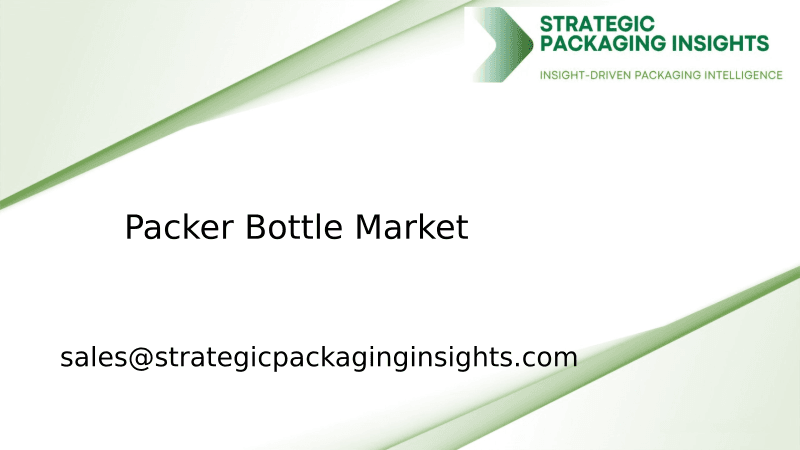
The packer bottle market was valued at $3.5 billion in 2024 and is projected to reach $5.8 billion by 2033, growing at a CAGR of 5.2% during the forecast period 2025–2033.
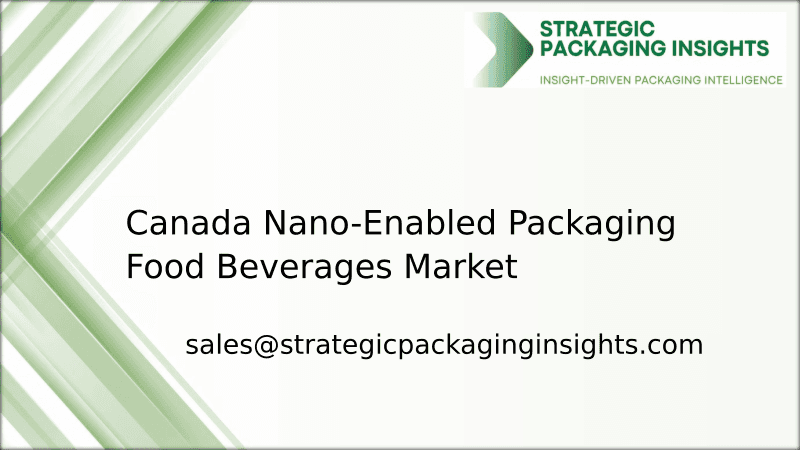
The Canada Nano-Enabled Packaging Food Beverages market was valued at $1.2 billion in 2024 and is projected to reach $3.5 billion by 2033, growing at a CAGR of 12.5% during the forecast period 2025–2033.
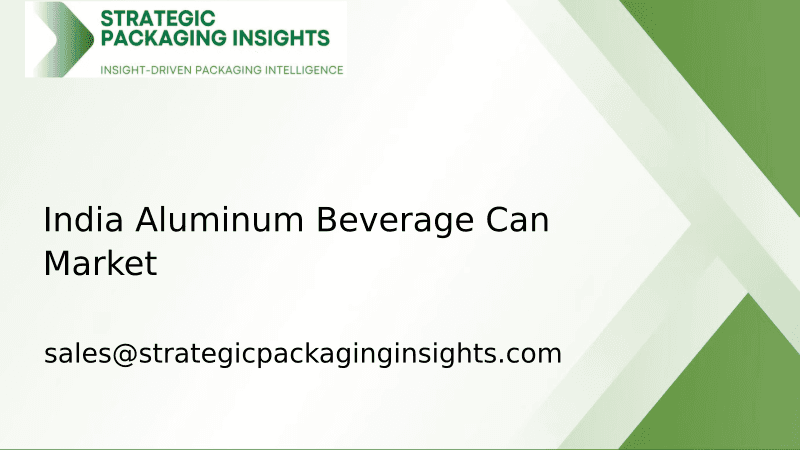
The India Aluminum Beverage Can market was valued at $1.2 billion in 2024 and is projected to reach $2.5 billion by 2033, growing at a CAGR of 8.5% during the forecast period 2025–2033.
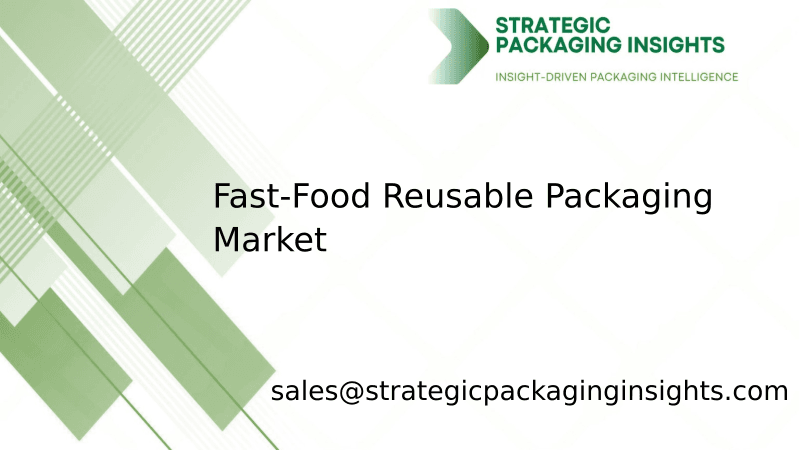
The fast-food reusable packaging market was valued at $1.2 billion in 2024 and is projected to reach $3.5 billion by 2033, growing at a CAGR of 12.5% during the forecast period 2025–2033.
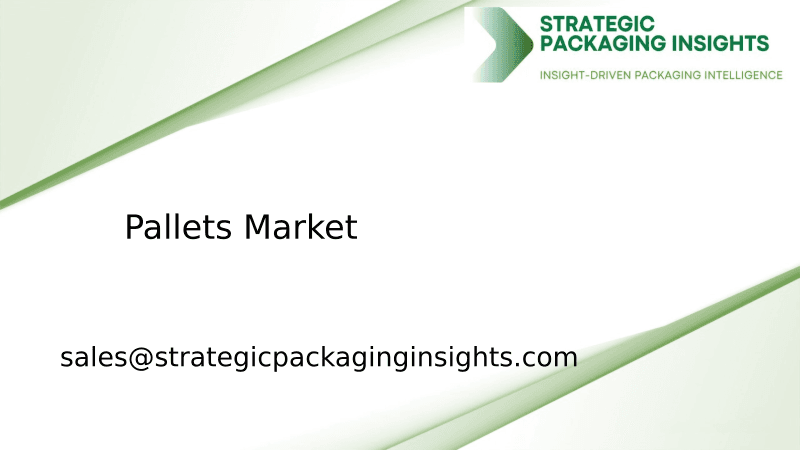
The pallets market was valued at $59.91 billion in 2024 and is projected to reach $88.69 billion by 2033, growing at a CAGR of 4.5% during the forecast period 2025–2033.

The lamination adhesives market was valued at $2.5 billion in 2024 and is projected to reach $4.1 billion by 2033, growing at a CAGR of 5.8% during the forecast period 2025–2033.

The garment packing machine market was valued at $1.2 billion in 2024 and is projected to reach $2.5 billion by 2033, growing at a CAGR of 8.5% during the forecast period 2025–2033.

The fiber drums market was valued at $1.2 billion in 2024 and is projected to reach $2.1 billion by 2033, growing at a CAGR of 6.5% during the forecast period 2025–2033.

The cosmetics and perfumery glass bottles market was valued at $1.5 billion in 2024 and is projected to reach $2.3 billion by 2033, growing at a CAGR of 4.8% during the forecast period 2025–2033.

The medical devices packaging market was valued at $25 billion in 2024 and is projected to reach $40 billion by 2033, growing at a CAGR of 5.5% during the forecast period 2025–2033.

The primary packaging labels market was valued at $35 billion in 2024 and is projected to reach $55 billion by 2033, growing at a CAGR of 5.2% during the forecast period 2025–2033.

The corrugated board packaging market was valued at $250 billion in 2024 and is projected to reach $380 billion by 2033, growing at a CAGR of 4.5% during the forecast period 2025–2033.

The Water Soluble Packaging Films market was valued at $2.8 billion in 2024 and is projected to reach $5.6 billion by 2033, growing at a CAGR of 8.1% during the forecast period 2025–2033.

The Aluminium Foil Packaging market was valued at $25 billion in 2024 and is projected to reach $40 billion by 2033, growing at a CAGR of 5.5% during the forecast period 2025–2033.

The self-heating food packaging market was valued at $4.5 billion in 2024 and is projected to reach $7.8 billion by 2033, growing at a CAGR of 6.2% during the forecast period 2025–2033.

The Smart Container market was valued at $2.5 billion in 2024 and is projected to reach $8.7 billion by 2033, growing at a CAGR of 14.5% during the forecast period 2025–2033.

The Automatic Labeling Machine market was valued at $2.5 billion in 2024 and is projected to reach $4.8 billion by 2033, growing at a CAGR of 7.2% during the forecast period 2025–2033.

The Hot Melt Glue Labeler market was valued at $1.2 billion in 2024 and is projected to reach $2.3 billion by 2033, growing at a CAGR of 6.5% during the forecast period 2025–2033.

The Ethical Label market was valued at $1.5 billion in 2024 and is projected to reach $3.2 billion by 2033, growing at a CAGR of 8.5% during the forecast period 2025–2033.

The Packaging Tensioner market was valued at $1.2 billion in 2024 and is projected to reach $2.3 billion by 2033, growing at a CAGR of 6.5% during the forecast period 2025–2033.

The foodservice packaging market was valued at $120 billion in 2024 and is projected to reach $180 billion by 2033, growing at a CAGR of 4.5% during the forecast period 2025–2033.

The nano-enabled packaging market was valued at $15.2 billion in 2024 and is projected to reach $35.6 billion by 2033, growing at a CAGR of 9.5% during the forecast period 2025–2033.

The Cold Seal Packaging market was valued at $1.5 billion in 2024 and is projected to reach $2.3 billion by 2033, growing at a CAGR of 4.8% during the forecast period 2025–2033.

The Transparent Barrier Packaging Films market was valued at $12.5 billion in 2024 and is projected to reach $20.3 billion by 2033, growing at a CAGR of 5.8% during the forecast period 2025–2033.

The Flatback Tape market was valued at $2.5 billion in 2024 and is projected to reach $4.1 billion by 2033, growing at a CAGR of 5.8% during the forecast period 2025–2033.

The packer bottle market was valued at $3.5 billion in 2024 and is projected to reach $5.8 billion by 2033, growing at a CAGR of 5.2% during the forecast period 2025–2033.

The Canada Nano-Enabled Packaging Food Beverages market was valued at $1.2 billion in 2024 and is projected to reach $3.5 billion by 2033, growing at a CAGR of 12.5% during the forecast period 2025–2033.

The India Aluminum Beverage Can market was valued at $1.2 billion in 2024 and is projected to reach $2.5 billion by 2033, growing at a CAGR of 8.5% during the forecast period 2025–2033.

The fast-food reusable packaging market was valued at $1.2 billion in 2024 and is projected to reach $3.5 billion by 2033, growing at a CAGR of 12.5% during the forecast period 2025–2033.

The pallets market was valued at $59.91 billion in 2024 and is projected to reach $88.69 billion by 2033, growing at a CAGR of 4.5% during the forecast period 2025–2033.

The lamination adhesives market was valued at $2.5 billion in 2024 and is projected to reach $4.1 billion by 2033, growing at a CAGR of 5.8% during the forecast period 2025–2033.

The garment packing machine market was valued at $1.2 billion in 2024 and is projected to reach $2.5 billion by 2033, growing at a CAGR of 8.5% during the forecast period 2025–2033.
